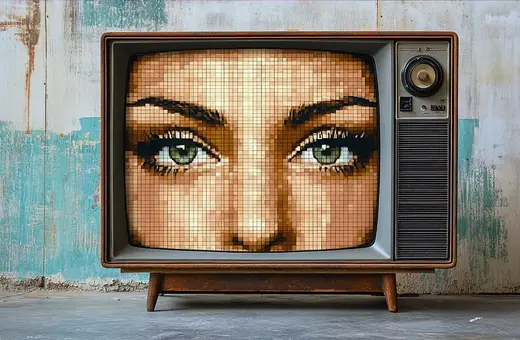Porn holds a mirror up to society. Most mainstream porn – the free stuff – is misogynistic and demonstrates a casual loathing of women. The personalized market algorithm that advertises you a new kettle the moment you half-mention to a friend you might need a new kettle, is also mining your search history, location, and other data to bring you the porn it thinks you want – and often in our erotic urges we ought to admit we can find something deeply unsettling. The answer to this predicament, is not less porn, but more creative, feminist porn, which can not only hold a mirror up to society, but nudge it, and us, in a better direction, writes Carol Hay.
It is a strange thing, the way our sexual desires present themselves to us. Very often, the experience is one of unreflective givenness: we are “born this way”, we simply like what we like, we have no conscious memory of choosing this or that, it is our loins—not our heads nor our hearts—that are steering the ship here. Of course, we know this isn’t the whole story. We also know that the fantasies in our heads, and even the love in our hearts, are capable of heating things up to a degree that simply can’t be made sense of at the level of brute animal rutting. This complexity is precisely what makes it so easy for sex to hold us in its thrall. As we grow older, many of us might also experience our desires shifting—perhaps not changing entirely, but evolving as we mature and come into ourselves and discover new things and outgrow the fear and shame and uncertainty that characterizes so many early sexual encounters. But, again, this experience more often feels like one of discovering something about ourselves—something that was already there—than of recreating ourselves. Finally, even if we’ve somehow managed to avoid taking on the belief that our sexual desires are shameful, most of us still think of them as private. We share a sense that sex should be carved off from the stuff of everyday life, that our sexual desires and fantasies are where we figure out and work through the parts of ourselves that are messy and resistant to neat categorization, that desire is and should be allowed to be unruly and remain uncontained by the neat rational boxes demanded by public social order.
What the hell is wrong with us, that we so willingly lap up images and scripts that revel in the degradation, domination, humiliation, and abuse of women?
In her excellent new book, The Right to Sex, Amia Srinivasan joins many generations of feminists before her in inviting us to pay new attention to our sexual desires: to ask ourselves what these desires are, where they come from, and, most uncomfortably, whether there might be something problematic about them. If we’re completely honest with ourselves, I doubt many of us come away from this kind of self-scrutiny assured that all is well and good. Instead, we intuitively understand, on some level, that there is something deeply unsettling about the content of many of our deepest erotic urges. This understanding, feminists insist, is not the recognition that our pre-political animal longings can be stubbornly resistant to civilizing forces; it is, rather, a recognition that our longings have been shaped by political forces that are themselves deeply suspect.





















Join the conversation